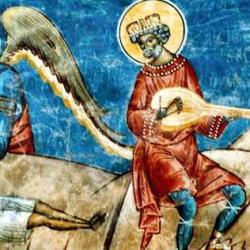Anthony Kronman begins his monumental Confessions of a Born-Again Pagan with several chapters on gratitude and its shifting fortunes in Western culture. He describes the shift from a gratitude-based organization of social life to a rights-based society. Gratitude assumes that social goods come by gift, on which we have no claim; entitlements are not gifts, and we can demand our rights. He writes,
As more and more of the support one needs to live, in ordinary times and hard ones, has come to be provided by the state as a matter of right, instead of by one’s family or friends or coreligionists in the form of a gift, the very idea that it is appropriate to feel and express one’s gratitude for such support has been displaced from public life. It has come to be associated with an older, now discredited system of patronage, whose moral premises are incompatible with the ethic of entitlement. Gratitude is an acceptance of one’s dependence on the love of others. But this is incompatible with the independence to which the political morality of rights attaches supreme importance. As a result, gratitude has become increasingly difficult to acknowledge or express as a public value, and has been replaced by a different set of attitudes, characterized by an alertness on the part of each citizen to the vindication of his or her rights and by a readiness to demand their enforcement (72).
To illustrate, Kronman calls attention to the absence of gratitude on the Vietnam Memorial in DC: “It contains no words of gratitude, of the sort one finds on earlier monuments. The memorial conveys, with matchless power, a sense of private loss” (72).
Kronman describes it later in the chapter as a “privatization” of gratitude, and notes that it was theorized during the Enlightenment. Philosophes bristled under the “degrading forms of dependence” associated with gratitude in the ancien regime (73). The disciple of economics plays a special role in the process, since he can re-describe any gift-and-gratitude transaction in terms of economic self-interest. Rawls gives a theory of inter-generational fairness that eliminates love and therefore gratitude.
Kronman exaggerates the privatization of gratitude. Public expressions of thanks are still common. More subtly, his treatment seems to assume a pre-existent private zone into which gratitude might be shuffled off. Much more likely, the redescription of the place of gratitude was part of the creation of the “private sphere,” a sphere that exists more in theory than in reality.















